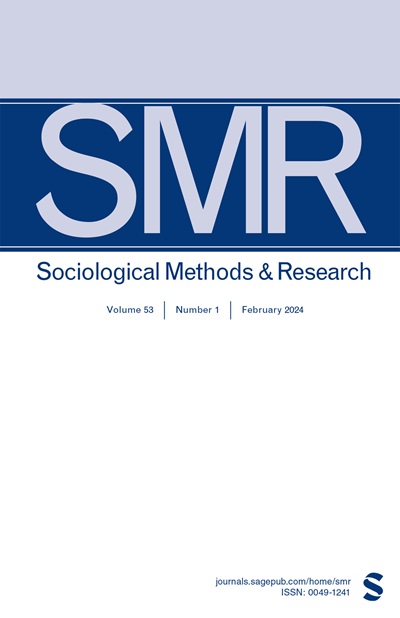随机反应设计中的自我保护反应:2019冠状病毒病大流行期间亲密伴侣暴力调查
IF 6.5
2区 社会学
Q1 SOCIAL SCIENCES, MATHEMATICAL METHODS
引用次数: 1
摘要
随机反应技术(RRTs)用于减少敏感研究问题(如社会不良特征)自我报告调查中的反应偏差。然而,有证据表明,他们不能完全消除自我保护的反应策略。为了解决这个问题,有专门设计的RRTs来衡量这种策略的程度。在此,我们评估了最近设计的不相关问题模型作弊扩展(UQMC),该扩展是在一项预先登记的在线调查中设计的,该调查是关于首次接触限制期间亲密伴侣暴力(IPV)的受害者和犯罪者,这是2020年初德国2019冠状病毒病大流行爆发的遏制措施。考虑自我保护反应的UQMC比其前身模型更好地描述了数据,后者假设遵循指令。由此得出的三个月患病率估计约为10%,我们发现在被问及IPV受害的女性参与者群体中,自我保护反应的比例很高。然而,关于受害和犯罪的患病率估计差异的意外结果突出了调查敏感研究问题的困难,即使使用保证匿名的方法和谨慎解释各自估计的重要性。本文章由计算机程序翻译,如有差异,请以英文原文为准。
Self-protecting responses in randomized response designs: A survey on intimate partner violence during the coronavirus disease 2019 pandemic
Randomized response techniques (RRTs) are applied to reduce response biases in self-report surveys on sensitive research questions (e.g., on socially undesirable characteristics). However, there is evidence that they cannot completely eliminate self-protecting response strategies. To address this problem, there are RRTs specifically designed to measure the extent of such strategies. Here we assessed the recently devised unrelated question model—cheating extension (UQMC) in a preregistered online survey on intimate partner violence (IPV) victimization and perpetration during the first contact restrictions as containment measures for the outbreak of the coronavirus disease 2019 pandemic in Germany in early 2020. The UQMC accounting for self-protecting responses described the data better than its predecessor model which assumes instruction adherence. The resulting three-month prevalence estimates were about 10% and we found a high proportion of self-protecting responses in the group of female participants queried about IPV victimization. However, unexpected results concerning the differences in prevalence estimates across the groups queried about victimization and perpetration highlight the difficulty of investigating sensitive research questions even using methods that guarantee anonymity and the importance of interpreting the respective estimates with caution.
求助全文
通过发布文献求助,成功后即可免费获取论文全文。
去求助
来源期刊

Sociological Methods & Research
Multiple-
CiteScore
16.30
自引率
3.20%
发文量
40
期刊介绍:
Sociological Methods & Research is a quarterly journal devoted to sociology as a cumulative empirical science. The objectives of SMR are multiple, but emphasis is placed on articles that advance the understanding of the field through systematic presentations that clarify methodological problems and assist in ordering the known facts in an area. Review articles will be published, particularly those that emphasize a critical analysis of the status of the arts, but original presentations that are broadly based and provide new research will also be published. Intrinsically, SMR is viewed as substantive journal but one that is highly focused on the assessment of the scientific status of sociology. The scope is broad and flexible, and authors are invited to correspond with the editors about the appropriateness of their articles.
 求助内容:
求助内容: 应助结果提醒方式:
应助结果提醒方式:


